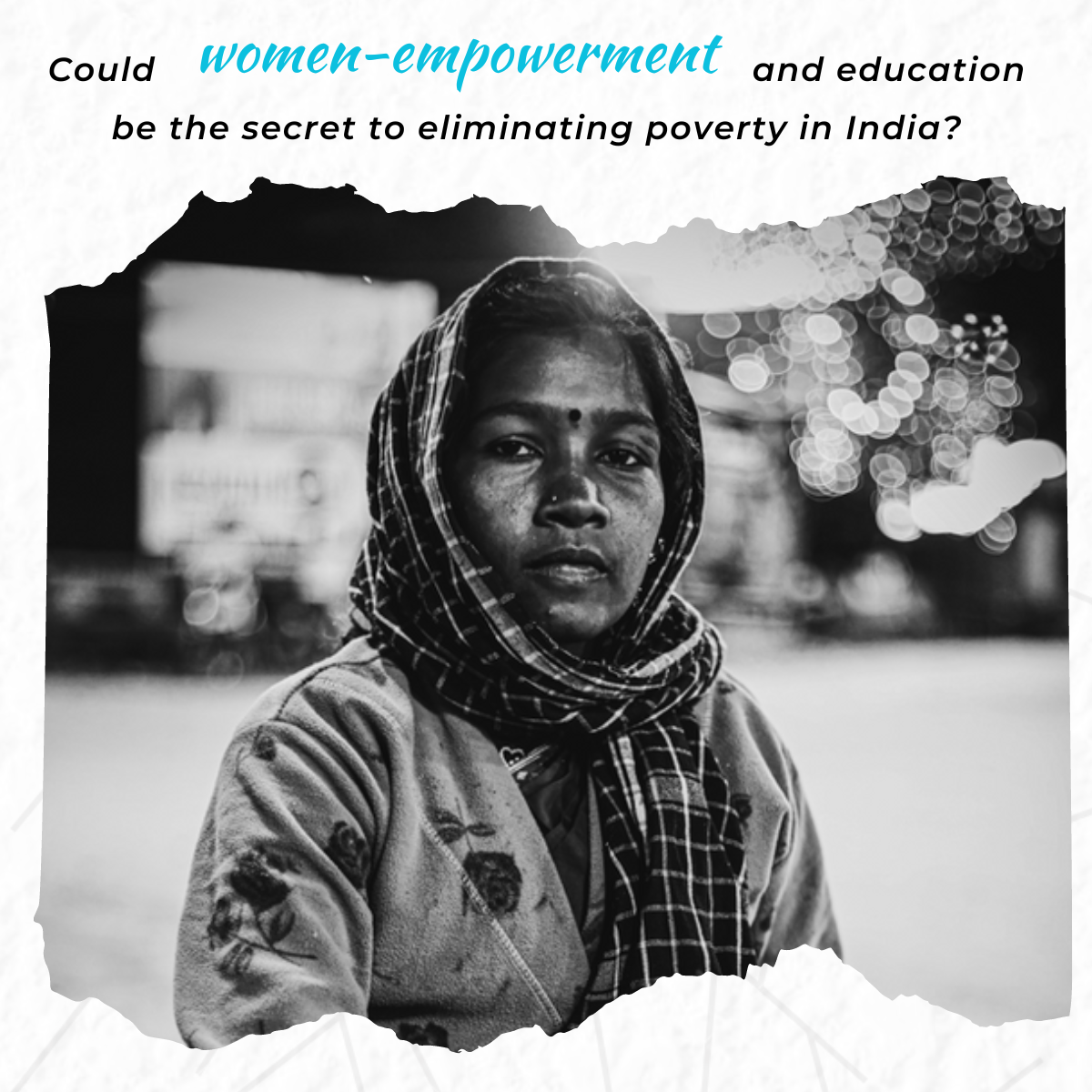
- By Admin
- 20 Jun 2023
Did you know that women are more affected by poverty than men?
Did you know that women are more affected by poverty than men?
You don't think so? Let's look at some numbers. Research shows 45 million women live in poverty
in 2022, instead of 38 million. Why is it that in a population of 50% women, they are more likely to suffer from poverty than their male counterparts?
Women comprise 70% of the world's working hours, yet they are plagued by poverty! We are in the 21st century, and still, women are paid only half of what men are paid. Their working environment is unsuitable, their pay is less, and rewards and recognition are negligible compared to men. They face atrocious inequalities and injustice at their workplace and even in their own families.
Men have education, better nutrition, and better earning prospects. This is true, especially in families affected by poverty. What is more worrying is that women themselves normalize and accept this inequality.
In a poverty-stricken family, it is okay and normal for girls not to get to school. What is even more pathetic for these women? It is usually their close family members who create these inequalities.
As a result, women work earlier to make ends meet and secretly suffer. They are married at a very young age, and the circle of abuse repeats itself elsewhere.
What is the solution?
Poverty affects education, and lack of education induces poverty. This vicious cycle continues, and the family remains impacted by poverty for several generations. What is more worrying is that women are affected more than men. Educating women and empowering them with resources is the only way to reduce inequality. Access to free and quality education is globally acknowledged as the best solution to poverty.
Education to Improve Income
Education helps a child develop cognitive, social, emotional, and communicative abilities. They gain the knowledge and skills to generate income and survive but also flourish.
In particular, women should be educated, and their earning potential should be increased. This improves their standard of living and uplifts their families. Education is vital to eradicate poverty and is recognized by the United Nations as one of the Sustainable Development Goals for 2030.
Education to eradicate inequality
Quality education improves not just the individual but also society. When children are treated with equality inside a classroom, it boosts morale boost for tomorrow's society. Today's children form tomorrow's communities. What is taught in the classroom ripples in tomorrow's society.
Education improves health
Educating girl children means educating future mothers. They better understand health - both their own and their children's. It empowers them to voice their ideas about marriage and prevents gender-based violence. Educated women seek healthcare services for themselves and their families, thus improving their health.
Education to Build Better Communities
Women's education can have a positive impact on their families and, therefore, society at large. Educated mothers will act as agents of change that will make a positive difference in society. They will know the value of education and invest their earnings in their children's education. Anything done to uplift a woman will uplift their family.
Education to Improve the Country's Economy
Since women make up a significant portion of the country's workforce, educating them improves their earning potential. This not only improves their family circumstances but also the country's economy. A study reveals that when 10% more women are educated in a country, their GDP increases by 3%.
Empowering Women to Abolish Poverty
Education empowers women with the knowledge and skills needed to become independent. Economically marginalized women should be given financial aid to become small-scale entrepreneurs and live up to their potential. We are able to eradicate inequality and aid in social reforms by empowering women.
Educating and empowering women is one of the most effective ways to reduce poverty. By focusing on offering access to quality education, they can become equally powerful voices in society. Doing so will improve women's freedom, respect, and dignity and eradicate poverty.